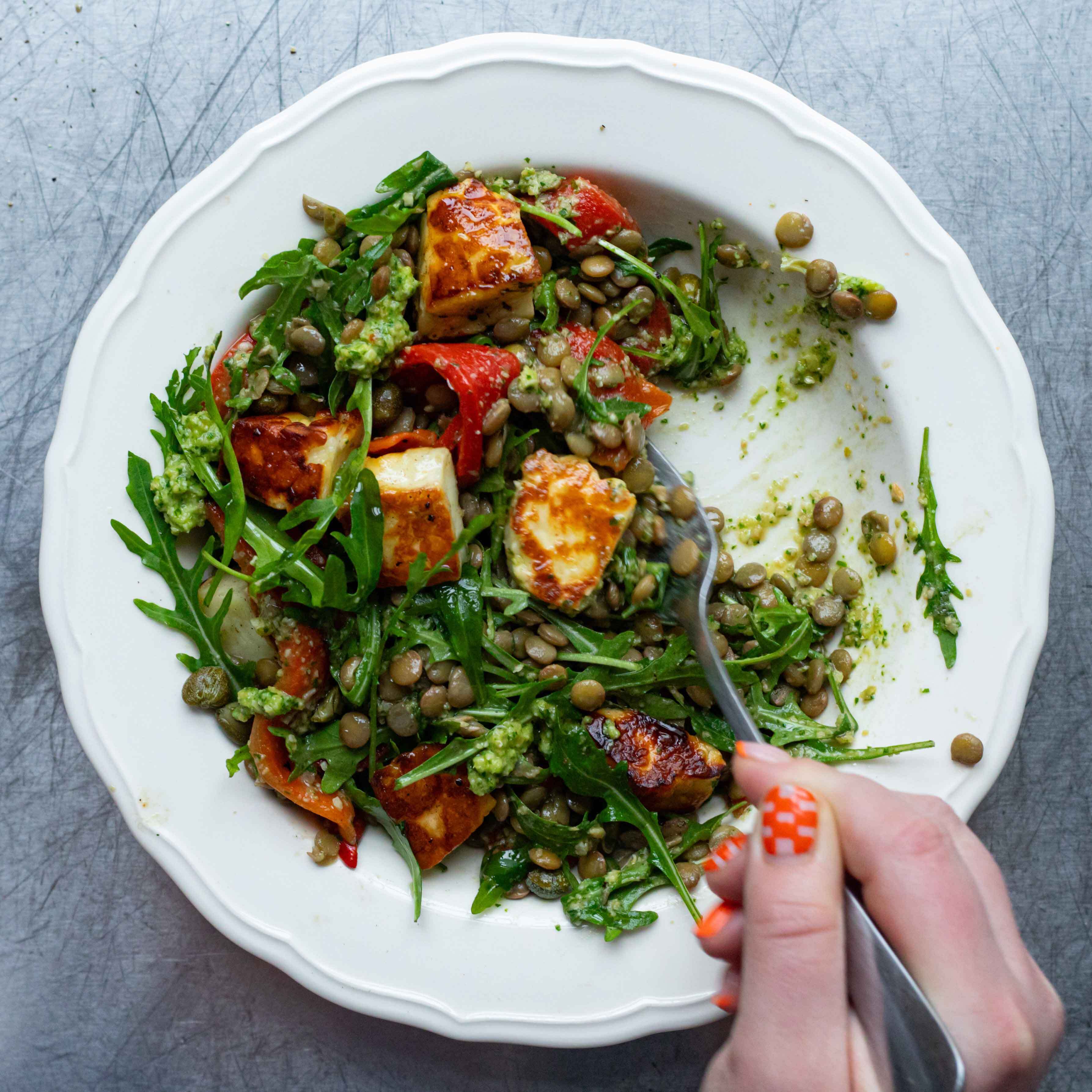A fan favourite that’s stocked in every supermarket you come across, halloumi is one of the world’s most loved cheeses. Crispy yet soft, squeaky yet tender, halloumi is incredibly versatile and – most importantly – absolutely delicious. But is halloumi healthy? This might be the question you ask yourself after inhaling that halloumi burger, not before. While this more-ish cheese is undeniably protein-heavy, there’s no escaping the fact that it is, unfortunately, pretty high in fat. Obviously, this doesn’t mean that it can’t be enjoyed in moderation, but it’s a good idea to know exactly what nutritional features halloumi has. Read on to find out everything you’d like to know about the health benefits of halloumi.
So, let’s have a look at the nutritional content of halloumi. It’s very high in protein – 7 grams in every 28-gram serving, in fact – which could suggest that halloumi is a healthy addition to that veggie kebab. You probably already know this, but protein is essential for loads of bodily functions, including hormone production, immune function, and tissue repair. This means that halloumi would make a pretty good meal if you’re trying to build muscle mass – just whack it in a salad with some greens and you’ve got yourself a lunch fit for a bodybuilder.
It’s also a great source of calcium, a micronutrient that is important for bone health. This makes eating halloumi a great way to provide your bones and teeth with strength and structure, as studies suggest that calcium combined with vitamin D can reduce the risk of bone fracture.
However, while protein and calcium work to suggest that halloumi is healthy, there’s no getting away from the fact that there’s also a pretty high sodium and fat content. In fact, one 28g portion of halloumi contains a whopping 9 grams of fat and 15% of your DV (Daily Value) of sodium.
